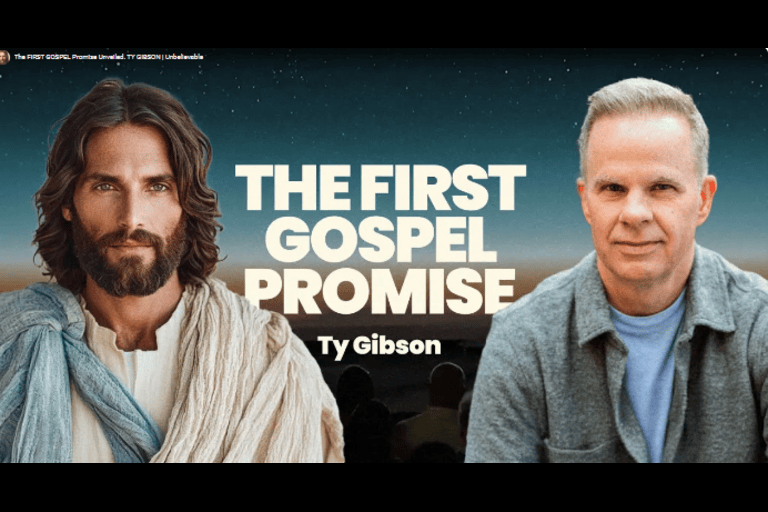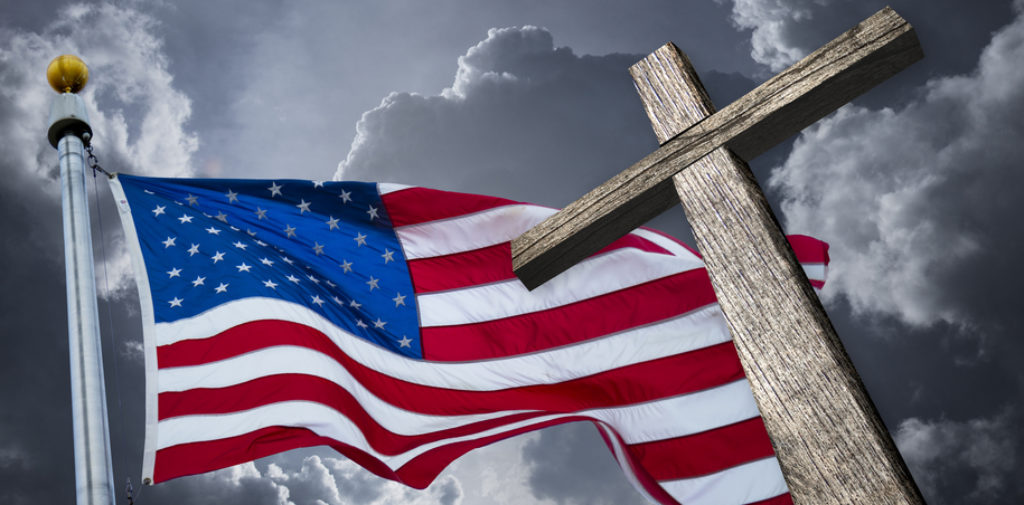Introduction: A Loving Call to Awareness and Compassion
In a world filled with shifting tides of faith, politics, and identity, it becomes more vital than ever for us to walk together with grace and brotherly love. The movement known as Christian nationalism is one such tide—subtle in its origins, yet powerful in its influence. It touches the very core of how we understand faith, society, government and the sacred calling of every person. In this post, we’ll explore the origin of the Christian-nationalist movement, how it is influencing evangelical life, government policy, the courts, the appointment of judges, social media, and – importantly – how it affects the liberty of conscience, the freedom of choice, the rights of the minority, and our beliefs about the second coming of Jesus Christ. We’ll also consider issues of religious mandates, Sunday-law or blue-law impulses, the Bible, the seventh day Sabbath, and the principles enshrined in the Constitution and the Bill of Rights. My hope is that you’ll emerge more informed, more compassionate, and empowered to uphold freedom of choice and liberty of conscience for all.
- Historical Origins of Christian Nationalism
1.1 Early roots and colonial America
The idea that religion and national identity are closely intertwined is not new. In the early colonial period in the United States—especially among the Puritans in New England—there was a strong sense that their community was chosen, covenantal, and publicly committed to Christian norms. That impulse laid part of the foundation for what would later be called Christian nationalism: the belief that a nation should reflect Christian values and that the identity of the nation is bound up with the faith. Scholars note that “American Christian nationalism has evolved around the contours of historical circumstances” since the eighteenth century, drawing on themes of sacred land, divine mission, and national identity.
Further back, some historians trace the roots of Christian-nationalist ideas to European colonialism, including the so-called “Doctrine of Discovery” which held that European Christians had a divine right to claim civilize non-Christian lands.
Throughout colonial and early republican America, tensions abounded: the founding documents such as the Constitution and the Bill of Rights enshrined religious freedom and forbade the establishment of a national religion, yet the mythos of “a Christian people” and “a Christian nation” persisted.
1.2 Twentieth-century developments
In the twentieth century, particularly during the Cold War, the merger of Christian identity and American identity deepened. For example, Congress adopted “In God We Trust” as the national motto; the phrase “under God” was added to the Pledge of Allegiance. These developments reflected an effort to cast America as both a political and spiritual bulwark against atheistic communism.
At the same time, the “religious right” began to organize in earnest. Groups such as the Moral Majority (founded by Jerry Falwell) mobilized evangelical Christians into a political bloc.
Scholars of the movement note that while many Christians simply engage politics from their convictions, Christian nationalism distinguishes itself by asserting that the United States is (or should be) explicitly a Christian nation, that its laws should reflect Christian values, and that being a “real” American involves being Christian (in a particular sense).
1.3 Contemporary surge and scholarly framing
Recently, the phrase “white Christian nationalism” has gained traction among scholars to describe a subset of this movement. Adherents believe America was founded by and for Christians and should continue to be a Christian nation today.
According to one scholar:
“Christian nationalism is an ideology that is based around the idea that this is a Christian nation … and therefore, it should be a Christian nation today and should be so in the future.”
Researchers have linked Christian nationalism to exclusionary attitudes toward minority religions, and to political projects that privilege Christian identity in law and culture.
In short: the movement has deep roots, evolving over centuries, but its current shape is particularly potent as faith, identity and politics converge.
- Influence on Evangelical Life
2.1 Evangelical engagement and identity
Many evangelical Christians feel called to engage the public square, to shape culture, and to advocate for moral values grounded in the Bible. However, when the impulse to engage becomes fused with the assertion that the nation must explicitly be Christian, and that laws must reflect one particular tradition, we see Christian nationalism at work within evangelical life.
In that context, evangelical identity can become entwined with national identity: to be Christian is to be American (or vice versa), to be truly American is to be Christian. This places pressure on both individual conscience and the rights of those who do not share that faith.
2.2 The second coming of Jesus Christ and urgency
For many evangelicals, the doctrine of the second coming of Jesus Christ is central: Christ will return, the kingdom will be consummated. When this eschatological hope is combined with the belief that society must now be re-ordered to reflect God’s kingdom, we see a theology that fuels urgency and public engagement. Some Christian nationalists take this to mean the nation must be prepared, must be Christian, must assert authority, so that the second coming is anticipated on a “Christian” national foundation.
While the Bible calls us to live with hope in the return of Christ, there is a question: when that hope becomes tied to a particular national project or faith-based political dominance, how does that influence how we treat those who differ from us? How does freedom of choice and liberty of conscience fare under that impulse?
2.3 Social media, identity and mobilization
In our era of social media, messages spread rapidly. Evangelical communities, especially those aligned with Christian nationalist ideas, often use digital platforms to shape narratives: “We are under threat,” “Our values are being attacked,” “We must reclaim our nation for God.” This online presence and mobilization link faith, politics and identity.
At the same time, for those whose faith differs or who choose no faith, the narrative can feel exclusionary. Rights of the minority and freedom of choice can be under pressure when the dominant narrative privileges one faith tradition in public life.
- Government Policy, Courts & Judicial Appointments
3.1 Government policy and religious mandates
Christian nationalism influences public policy when lawmakers and activists argue that governmental laws should reflect Christian moral norms. Examples include lobbying for laws aligned with the Bible, laws restricting abortion, laws opposing LGBT-rights expansions, or pushing for Sunday laws or blue laws (laws that restrict commerce or public activity on Sunday in honor of Christian Sabbath tradition).
Historically, blue laws were common in many U.S. states, often rooted in Christian tradition. While many have been repealed or relaxed, the impulse remains visible in policy debates. The notion of a “Sunday law” resurfaces in some Christian nationalist rhetoric as part of a moral public order.
The risk: when the state privileges one religious tradition’s norms (one understanding of Sabbath, one understanding of morality) it can impinge on freedom of choice, the liberty of conscience of those who differ, and the rights of the minority in faith, lifestyle or belief.
3.2 Courts and appointment of judges
The courts are a key battleground. Under Christian nationalist influence, judges may be appointed who interpret the Constitution and the Bill of Rights in a way that privileges a Christian-national vision rather than religious pluralism. For example, Christian nationalist views may hold that America is a Christian nation and that laws should reflect Christian values; thus the role of judges becomes not simply impartial arbiters but agents of a Christian national project.
When that happens, the rights of religious minorities or secular individuals may be less vigorously protected, and the freedom of choice (for example, of faith, of worship, of lifestyle) may be constrained.
3.3 Impact on rights of the minority & liberty of conscience
The core Christian-nationalist idea that the nation is Christian and laws should reflect Christian values inherently raises tensions with rights of the minority and liberty of conscience. Liberty of conscience means that each person has the right to hold their beliefs and live accordingly without coercion. This is a key principle underlying religious freedom in the Constitution and the Bill of Rights. When a majority faith is embedded into law and public identity, minority faiths (or no faith), dissenting Christians, secular citizens, LGBTQ+ persons, immigrants, alternative cultures, all may find themselves on the margins.
Scholars identifying Christian nationalism as “the single biggest threat to religious freedom” warn that when government is molded by one religious identity, it endangers the pluralistic commitments of the Constitution and the Bill of Rights.
- Social Media, Cultural Influence & Freedom of Choice
4.1 Digital culture and narrative shaping
On social media, Christian nationalists use powerful identity narratives: “This is a Christian nation,” “Our heritage is under attack,” “The Bible should guide our laws.” According to a survey, around half of U.S. adults say the Bible should have at least some influence on U.S. laws.
For many Christians, that resonates deeply. But for society at large, it raises questions about freedom of choice: whose Bible? Whose interpretation? Does the state favor one reading or faith tradition over others?
In digital spaces, echo-chambers can amplify fear or grievances, weaken nuance, and marginalize voices of minorities or dissenters. Social media has become a tool for mobilization, identity formation, and cultural power.
4.2 Sunday laws, blue laws, seventh day Sabbath and cultural conflict
Embedded in the Christian-nationalist movement are cultural issues such as Sunday laws (or “blue laws”) and conflicts over the seventh day Sabbath. Some Christians, particularly those who observe the seventh-day Sabbath (Saturday) rather than Sunday, feel under pressure when society privileges Sunday observance implicitly via laws or cultural expectations.
In turn, some Christian nationalist tendencies push culturally that Sunday should be sacrosanct, commerce should slow, public life should honor the “Christian Sabbath tradition” (as historically in some U.S. states). That raises issues of freedom of choice for those who observe a different day (Saturday- the Biblical seventh day Sabbath) or who do not observe a religious Sabbath at all. Rights of the minority, whether minority religious traditions or secular individuals—are implicated.
When religious mandates (laws or cultural expectations) start to favor one group’s observance over others, the ideal of liberty of conscience is tested. Every person should have freedom of choice: to believe, to worship (or not), and to live according to their conscience without being coerced or marginalized by law or culture.
4.3 Freedom of choice, minority rights and Christian-nationalist reach
Freedom of choice means that individuals can make decisions about their faith, worship, lifestyle and civic participation without undue coercion. Christian nationalism’s influence in culture and policy can challenge that freedom if laws or norms begin to favor one religious tradition’s interpretation.
The rights of the minority—religious minorities, non-religious people, dissenting Christians, those observing a different Sabbath, or indeed people of other faiths—depend on the guarantee of liberty of conscience and equal protection under the Constitution and Bill of Rights. If Christian nationalists influence policy, culture or law to privilege one faith identity, the rights of the minority may suffer. If we learn from history, sadly, the rights of the minority will suffer.
- Key Arguments and Main Points
5.1 The founding myth and Christian identity
A central theme of Christian nationalism is the conviction that the United States is a Christian nation, founded on Christian values, and should continue as one. As scholars point out, many Christian nationalists believe the founding documents were inspired by God and that the nation has a special covenant.
That narrative influences how evangelicals and other Christians engage public life: the Bible is seen as not only relevant to personal faith but to national law and policy. A survey shows many adults agree the Bible should influence U.S. laws.
When the founding myth merges with national identity, the issues of pluralism, minority rights, freedom of choice and liberty of conscience become deeply relevant.
5.2 The intertwining of faith, politics and power
Christian nationalism goes beyond personal faith to a project of social transformation: government, law, courts, public culture should reflect a Christian worldview. This includes the appointment of judges sympathetic to Christian nationalist views, policies that reflect Christian values, cultural laws (blue laws/Sunday laws), and mobilization of evangelical communities.
As one article notes, Christian nationalism is “boundary-enforcing, authoritarian” and associated with “fusion of identitarian Christian identity and cultural conservatism with American civic belonging.”
This blending of faith and power raises important questions:
Does this preserve genuine religious freedom and the rights of all? Or does it tilt the playing field?
5.3 Liberty of conscience, rights of the minority and pluralism
Whether one is Christian or not, the principle of liberty of conscience is foundational. The Constitution and the Bill of Rights protect the free exercise of religion, the freedom of speech, the right to equal protection, and the norm that the government should not establish one religion over another. When Christian-nationalist impulses push for religious mandates or laws grounded in one tradition, the rights of the minority may erode.
Scholars argue Christian nationalism presents “a significant threat to religious freedom and religious pluralism.”
Ensuring that every person has freedom of choice—whether to believe, to worship, or not, whether to observe Saturday, Sunday, or no Sabbath at all—is vital to the flourishing of a diverse society grounded in the Bible’s teaching of love, justice, mercy and dignity.
5.4 Cultural conflict: Sunday law, blue law, seventh day Sabbath
Within the broad Christian world, there are differences of conviction: some observe the seventh day Sabbath (Saturday), others Sunday. Some believe in Sunday law or blue law mandates where civil law privileges Sunday observance or limits commerce/activity on that day. Christian nationalist impulses may push such laws or cultural norms. Those who observe Saturday or a different day, or those who choose not to observe a religious day, may feel marginalized.
The question arises: Does public policy honor freedom of choice and rights of the minority, or does it impose one tradition’s observance on all? Faithful Christians must ask: how do we honor our own convictions (whether Sabbath keeping or not) while protecting the freedom of others to differ?
5.5 The hope of the second coming and kingdom ethics
Finally, for many Christians the doctrine of the second coming of Jesus Christ imparts urgency and hope. The Bible teaches that one day Christ will return, resurrect the dead, and make all things new. That future hope influences how we live now: with justice, mercy, humility. However, when the hope of Christ’s return is conflated with nationalistic ambitions—“we must make the nation Christian, so the second coming is ‘on track’”—then the line between kingdom ethics and national power becomes blurred. The Bible calls us to remember that our ultimate citizenship is in heaven, and our mandate on earth is to love God and love neighbor, not to elevate one nation or one tradition above the dignity of all humans.
- Practical Tips for Faithful Engagement
With the issues so rich and complex, how can you, engage wisely, lovingly, and courageously? Here are some practical tips:
Tip 1: Ground your faith in the Bible with humility.
Let your convictions be rooted in Scripture and prayer. Whether you observe the seventh day Sabbath, Sunday worship, or hold some other conviction, hold them with gentleness. Be open to listening and avoid imposing your conviction on others by force or law.
Tip 2: Uphold liberty of conscience and respect the rights of the minority.
Whether you are in the majority or minority, the principle of liberty of conscience means that each person should be free to hold and act upon their beliefs. Advocate for laws and policies that protect freedom for all. Remind yourself that the Constitution and Bill of Rights are designed to safeguard individuals against the tyranny of the majority.
Tip 3: Engage culture and politics ethically and thoughtfully.
If you feel called to public policy, social media, or cultural engagement, do so with integrity. Ask: does this policy respect the freedom of choice for all? Does it uphold minority rights? Does it define “American” unfairly? Does it privilege one tradition at the expense of others? Be willing to dissent from both secular coercion and religious coercion.
Tip 4: Use social media as a place of dialogue, not only mobilization.
Social media can easily become an echo chamber. Instead, committing to sharing content that fosters understanding, upholds the dignity of the minority, protects freedom of conscience, and encourages respectful discussion. Listen to voices of those who differ from you. Challenge narratives that say, “You’re not truly American if you don’t share my faith.”
Tip 5: Build relationships across differences.
Step out of your comfort zone to engage people of other faiths, people observing different Sabbaths or no Sabbath, people who hold different political beliefs. Fellowship, friendship and dialogue strengthen the social fabric. They also protect rights of the minority and strengthen freedom of choice. When you know someone personally, you are more likely to defend their liberty of conscience.
Tip 6: Remember the second coming but live today with love and justice.
As you hold hope in the second coming of Christ, let that hope guide your present life: in compassion, justice, mercy, and humility. Resist the temptation to treat national or political power as the means of redeeming the world. Rather, seek to live the kingdom values now: love for neighbor (even if neighbors differ), service to the vulnerable, and honoring diversity.
Conclusion: A Loving Invitation to Discerning Hope
Beloved reader, the movement of Christian nationalism touches deeply not just politics, but the soul of our society: evangelical identity, government policy, the courts, social media, rights of the minority, freedom of choice, the liberty of conscience, and our hope in the second coming of Jesus Christ. We’ve walked together through the origin of the movement, how it influences evangelical life, how it shapes policy, law and culture, and how it challenges (or can threaten) the rights of the minority and the freedom of choice.
And yet, I believe that our ultimate identity is in Christ, our ultimate citizenship is in the Kingdom of God, and our calling is to love, protect, serve, and uphold liberty of conscience for every person. Laws and culture can shift, judges come and go, policies rise and fall—but the fundamental dignity of each human and the freedom of each person to believe, to worship, to live in accordance with their conscience is eternal and sacred.
Engage thoughtfully but gently; hold your convictions with courage but also with compassion; pray for grace, an understanding heart, the forgiveness of sins and protect your own freedom of choice while fiercely protecting the freedom of choice for others; honor the Bible and the seventh day Sabbath, a special day that was made by God for man, a day of blessing, day of holiness, a palace in time that we can have special communion with God and a day of re- creation
Recognize the rights of those who differ; seek the common good, not merely for “us,” but for “all.”
May we work together to build a society where faith flourishes, freedom endures, minority rights are honored, liberty of conscience is held sacred, and the hope of the second coming of Jesus Christ inspires us to live not in fear, but in love, service, and hope.
Let us be reminded what John Adams wrote to the Massachusetts Militia in 1798:
“Our Constitution was made only for a moral and religious People. It is wholly inadequate to the government of any other”.






